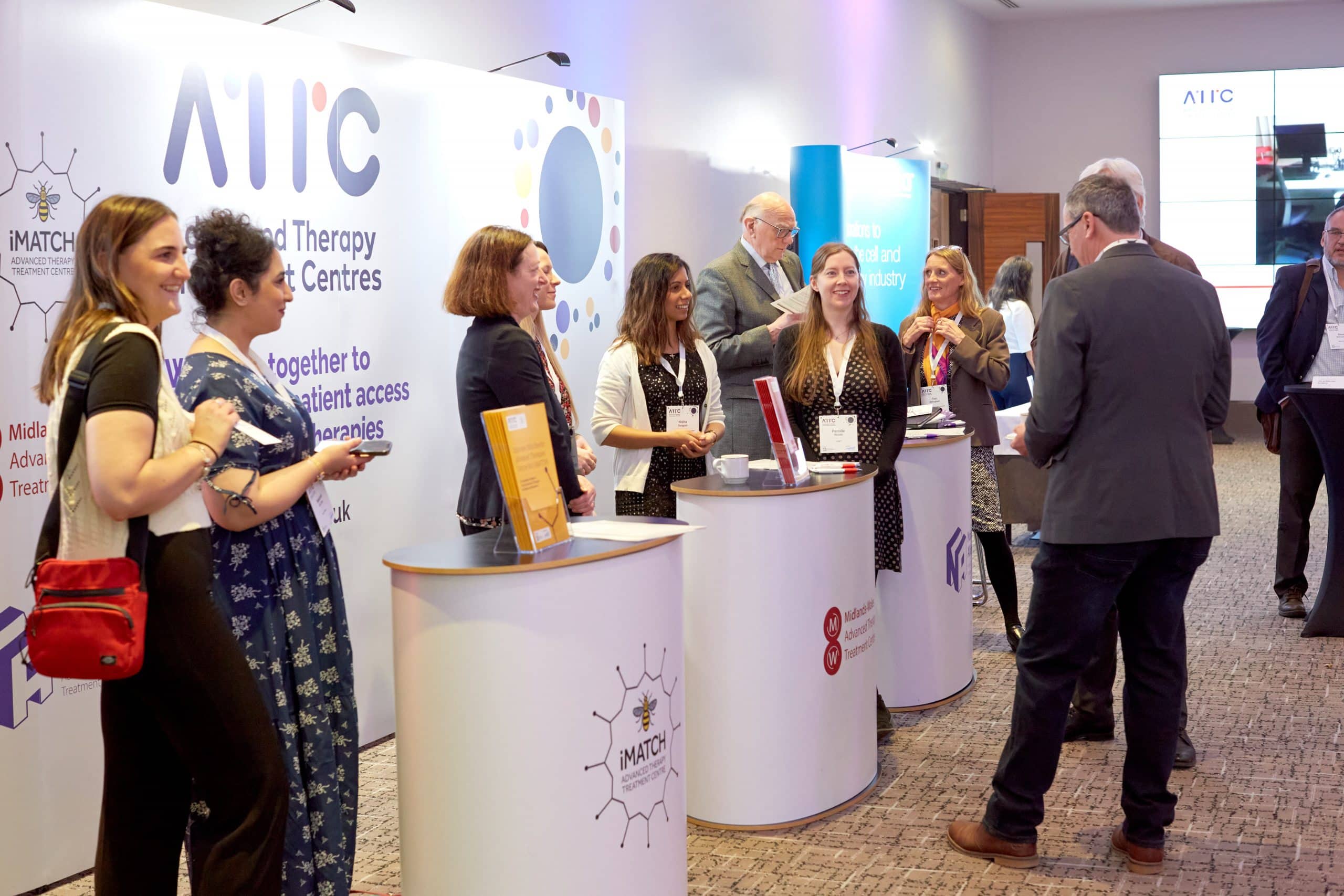Focus Group Meeting to inform the development of public engagement events on Advanced Therapies
15th July 2019
The Midlands and Wales Advanced Therapy Treatment Centre (MW-ATTC) is interested in finding out what the public know and how we feel about cell and gene therapies (collectively known as Advanced Therapies). These treatments are for conditions that cannot be cured with current treatments and include arthritis, liver disease, several types of cancer and diabetic ulcers. Our views will be part of a report which will be published February 2021, and is being run by The University of Birmingham, University Hospital Birmingham NHS Foundation Trust and Velindre University NHS Trust as part of a broader grant funded by Innovate UK. Innovate UK is the operating name of the Technology Strategy Board, the UK’s innovation agency.
We arrived at 12.30 and lunch and refreshments were provided for us, toilets were located nearby, and the room was on the ground floor so there were no accessibility issues. The group consisted of a mix of researchers, clinicians, patients and members of the public who had an interest in cell therapy. We were informed of what our data would be used for and we all had to sign consent and confidentiality forms and any travel expense forms were done to ensure our expenses were covered. We then introduced ourselves and started the discussion. The first part included a few questions which we had to respond to by pressing a number (1 – 5 usually) on a keypad – this was called a Likert Scale, and it assessed our knowledge at the beginning of the session.
We then were introduced to Professor Poulam Patel, a Clinical Oncologist who discussed with us the different advanced therapies. Amazingly he said that even though we thought cell/gene therapy was futuristic, the first gene therapy was done in 1989 by a man called Rosenberg and that blood donor therapy was part of this type of treatment. He explained that cells can be autologous (your own) or allogenic (donor), that stem cells can be used to make any cell and are divided into 2 main types – embryonic and adult. Embryonic cells are used in the lab and are undifferentiated – meaning they can turn into more than one type of cell. The adult stem cells can be collected from fully developed tissue – such as skin, brain and bone marrow, but these only have small amounts of stem cells and are more likely to generate only certain types of cells – for example liver stem cells will only generate more liver cells. The other type is a stem cell that has been de-differentiated in the laboratory and re-programmed, this was first done in 2006. The ‘modifications’ that happen within the laboratory are either genetical or drug based – for example adding a chemotherapy drug to the cell that is being targeted to the tumour when a patient has liver cancer.
We then heard from Jack Squires, a research nurse from City Hospital, Nottingham who has been involved with facilitating a new treatment at the hospital called Immunotace. This is for a specific form of cancer called Hepatocellular Carcinoma (HCC) and is the most common primary liver cancer and the third most common cause of cancer – related death worldwide. This treatment has enabled target specific, Trans Arterial Chemo Embolization (TACE) and a new trial with the addition of a dendritic cell vaccine which helps a patient’s immune system whilst they undergo treatment. We then had the pleasure of meeting a patient called Rita, who over 1 year ago was told her liver tumour was inoperable and that the only treatment was this new trial. Up to date she has had 3 treatments and is feeling and looking really well, she is now having regular check-ups and so far, the treatment has been a success.
After a refreshment break we had an open table discussion about the pros and cons of taking part in a clinical trial, after which we opened up to a full room discussion about what we had individually talked about. We then answered the same questions from the beginning of the session and Kathryn Rodden (Lead Facilitator) showed us using the Likert Scale that our answers proved we now all felt that we knew more about Advanced Therapies. The future for treatment is definitely moving in this direction and can only mean better results (with increased life expectancy), less side effects and a huge potential cost saving for the NHS.


